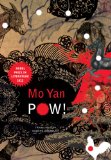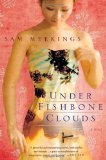Summary | Excerpt | Reading Guide | Reviews | Read-Alikes | Genres & Themes | Author Bio

A man's search for meaning -- in life, in the journey -- turns up the possibility that there may be no meaning. The elusive Lingshan (Soul Mountain) becomes the object of his quest. A novel of immense wisdom and profound beauty.
In 1983 Chinese playwright, critic, fiction writer, and painter Gao Xingjian (pronounced gow shing-jen) was diagnosed with lung cancer and faced imminent death. But six weeks later, a second examination revealed there was no cancer -- he had won "a reprieve from death" and had been thrown back into the world of the living. Faced with a repressive cultural environment and the threat of a spell in a prison farm, Gao fled Beijing. He traveled to the remote mountains and ancient forests of Sichuan in southwest China and from there back to the east coast, a journey of fifteen thousand kilometers over a period of five months. The results of this epic voyage of discovery is Soul Mountain.
A bold, lyrical, prodigious novel, Soul Mountain probes the human soul with an uncommon directness and candor. Interwoven with the myriad of stories and countless memorable characters -- from venerable Daosit masters and Buddhist nuns to mythical Wild Men, deadly Qichun snakes, and farting buses -- is the narrator's poignant inner journey and search for freedom.
Fleeing the social conformity required by the Communist government, he wanders deep into the regions of the Qiang, Miago, and Yi peoples located on the fringes of Han Chinese civilization and discovers a plethora of different traditions, history, legends, folk songs, and landscapes. Slowly, with the help of memory, imagination, and sensory experience, he reconstructs his personal past. He laments the impact of the Cultural Revolution on the ecology -- both human and physical -- of China. And in a polyphony of narrating selves -- the narrator's "I" spawns a "you," a "she," and a "he," each with a distinct perspective and voice -- the novel delights in the freedom of the imagination to expand the notion of the individual self.
Storytelling saves the narrator from a deep loneliness that is part of the human condition. His search for meaning -- in life, in the journey -- turns up the possibility that there may be no meaning. The elusive Lingshan ("Soul Mountain"), which becomes the object of his quest, never yields up its secrets, but the journey is a rich, strange, provocative, and rewarding one. Soul Mountain is a novel of immense wisdom and profound beauty.

If you liked Soul Mountain, try these:

by Mo Yan
Published 2014
In this novel by the 2012 Nobel Laureate in Literature, a benign old monk listens to a prospective novice's tale of depravity, violence, and carnivorous excess while a nice little family drama - in which nearly everyone dies - unfurls.

by Sam Meekings
Published 2010
Sam Meekings's remarkable debut novel showcases his luminous, poetic writing, as well as insights that belong to a writer twice his age. Part love story and part historical narrative, Under Fishbone Clouds carries the weight and beauty of a lifetime's achievement.